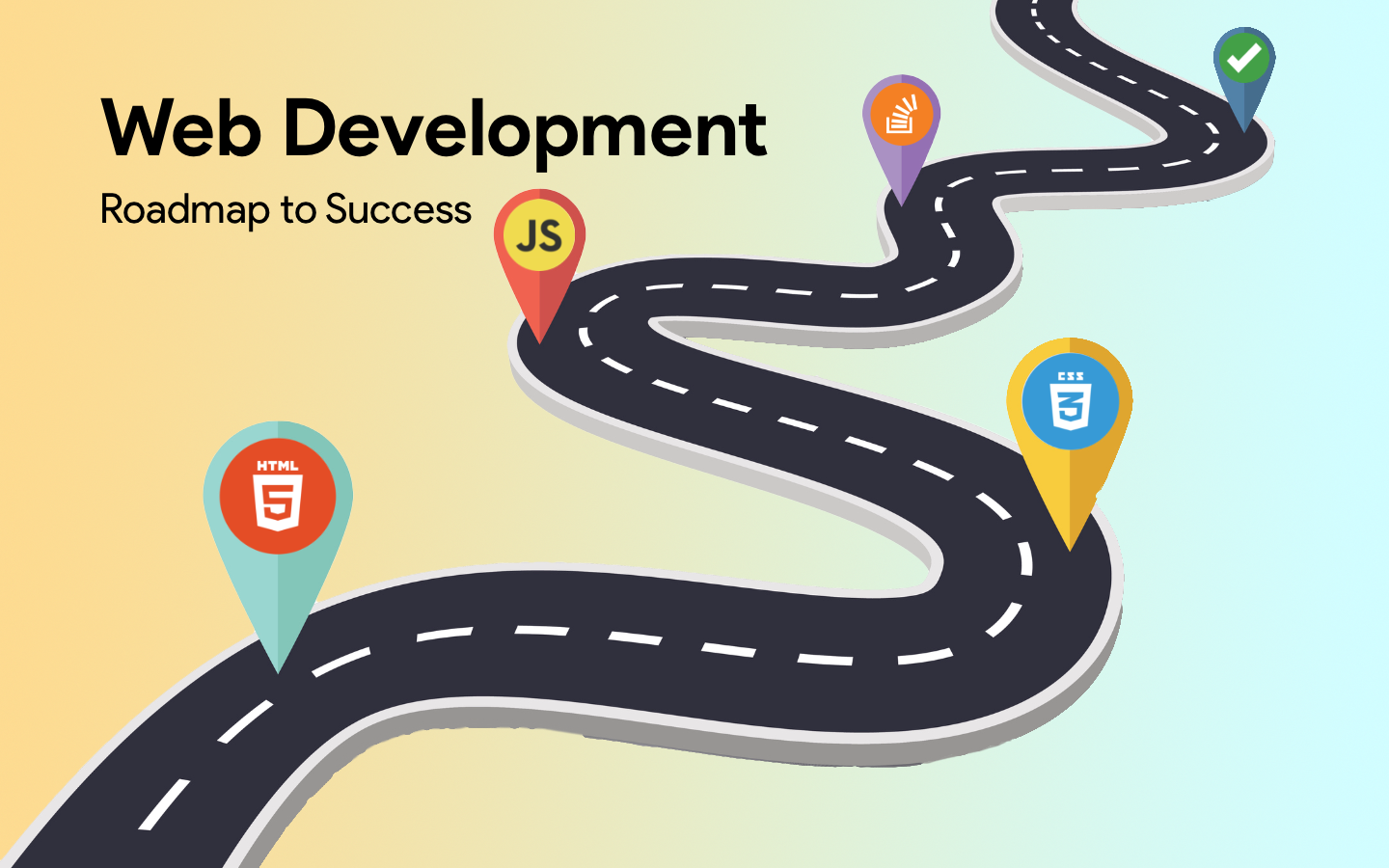Web Development Roadmap

A web development roadmap typically includes a structured path for learning and mastering various technologies and skills required for building modern web applications. Here's a general outline of a web development roadmap, organized by key topics and technologies:
1. Fundamental Technologies:
-
HTML and CSS:
- Learn the basics of HTML (Hypertext Markup Language) for structuring web content.
- Understand CSS (Cascading Style Sheets) for styling and layout.
-
JavaScript:
- Master JavaScript, which is crucial for adding interactivity and dynamic behavior to web pages.
- Learn ES6+ features and concepts.
2. Front-End Development:
-
Responsive Design:
- Understand and implement responsive web design to ensure your applications work well on various devices and screen sizes.
-
CSS Preprocessors:
- Explore CSS preprocessors like Sass or Less to enhance your styling workflow.
-
Front-End Frameworks:
- Learn a front-end framework such as React, Angular, or Vue.js for building modular and scalable user interfaces.
-
State Management:
- Understand state management in front-end frameworks (e.g., React's Redux or VueX).
-
Build Tools:
- Familiarize yourself with build tools like Webpack for bundling and optimizing your code.
-
Package Managers:
- Learn to use package managers like npm or Yarn to manage dependencies.
-
Version Control:
- Master Git for version control to track changes in your code.
3. Back-End Development:
4. Full-Stack Development:
5. Testing:
-
Unit Testing:
- Implement unit testing for your code.
- Learn testing libraries/frameworks such as Jest or Mocha.
-
End-to-End Testing:
- Explore end-to-end testing tools like Cypress or Selenium.
6. Additional Topics:
-
Web Security:
- Understand common security practices and vulnerabilities.
- Implement HTTPS, secure authentication, and other security measures.
-
Performance Optimization:
- Learn how to optimize your web applications for performance.
-
Progressive Web Apps (PWAs):
- Explore building Progressive Web Apps for a better user experience.
-
Web Accessibility (a11y):
- Learn about web accessibility standards and ensure your applications are accessible to all users.
7. Advanced Topics:
8. Soft Skills and Best Practices:
9. Continuous Learning:
Remember that this roadmap is a general guide, and the specifics might vary based on your interests, goals, and the type of web development you want to pursue (e.g., front-end, back-end, or full-stack development). Additionally, practical, hands-on projects are essential to reinforce your learning throughout this roadmap.
Thank you.
